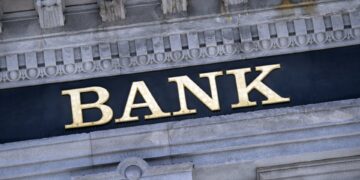By Steven Scheer
JERUSALEM, Feb 15 (Reuters) – Israeli banks will likely beallowed to resume limited dividend payments later this yearafter having overcome a wave of loan deferments during thecoronavirus pandemic, the country’s banking regulator said.
Yair Avidan, the supervisor of banks at the Bank of Israel,also said he backed banks’ moves into “digital wallets” andexpects Apple Pay to enter the Israeli market thisyear, with similar offerings from Samsung and Googleto follow later.
Three of Israel’s largest banks — Hapoalim, Leumiand Discount — have announced plans tolaunch digital wallets, which allow customers to pay via mobilephones in stores.
Avidan, a banking industry veteran who took over the Bank ofIsrael post last May, said 2020 was a tough year for banks andthe economy as a whole.
But he told Reuters easier regulations that allowed forlower capital requirements and businesses and households todefer loan and mortgage payments, while also continuing to lend,helped keep the economy afloat.
Following the policy in force under Avidan’s predecessor,banks had to halt dividends and share buyouts in exchange for a1% reduction in capital ratios.
Avidan said although the economic environment remaineduncertain, dividend resumption was on the table.
“I believe in the second half of 2021, maybe will be theright time to start allowing dividends but not in the samemagnitude prior to this crisis,” Avidan said.
Prior to the COVID-19 pandemic, banks paid dividends of upto 40% of quarterly net profit. But Avidan said once dividendsresumed, payouts likely would be initially capped at about 15%,which is similar to what is expected in Europe.
Through the first nine months of 2020, profit at Israel’sfive main banking groups slid to a combined 4.9 billion shekels($1.5 billion) from 8.6 billion in the same period in 2019. Atthe same time, provisions for loan losses soared to 7.3 billionshekels from 1.6 billion.
Still, banks have been able to maintain a ratio of equityTier 1 capital to risk components of 10-12%. The government hasbacked loans and the central bank has loaned banks funds at lowrates to encourage credit to small businesses.
Avidan said 70-80% of customers who deferred loans havebegun to repay those debts and just a “low portion” will stillbe in a deferral period until June, with 2-3% having financialdifficulties that could have long-term effects.
The central bank a month ago eased rules on mortgages aimedat lowering monthly payments, and Avidan said he was monitoringthe situation to ensure banks were complying.
Israel’s unemployment rate has topped 15% as a result of thepandemic that led to businesses to close or scale down duringthree lockdowns the past year, resulting in an estimated 2020economic contraction of some 3.7%.
Avidan said banks have passed a number of stress tests overthe last year. “As far as we see right now, customers and banksare in good position,” he said, praising the banks’ high levelsof loan loss provisions.
When asked if any bank was in danger of failing, Avidansaid: “Definitely not at all … We are very sure about theresiliency of the banks.”
“I am not saying there won’t be any bankruptcies or any baddebts but right now we see this in the very low single digits,”he said. “Some customers will suffer. We will try to bring it toa minimum but it’s not just upon the banks. It’s on thecustomers too.”
Avidan said it would take an economic crisis of triple ofwhat we are experiencing currently, with capital marketsplunging and Israel facing serious geopolitical problems to harmthe banking system.
($1 = 3.2479 shekels)(Reporting by Steven Scheer; Editing by David Evans)








